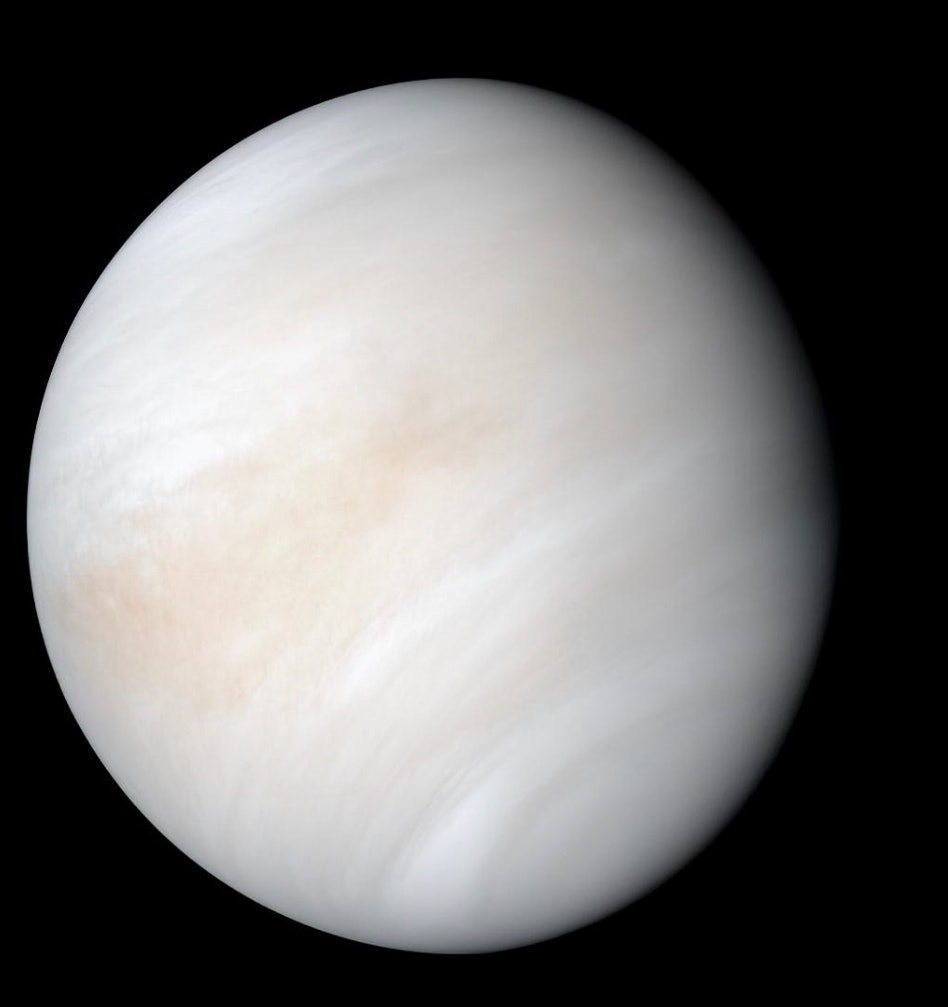
Rocket Lab is aiming for Venus.
The spaceflight company has made a name for itself with small satellite launches tailored to customers’ needs. CEO Peter Beck previously told Inverse that the long-term goal is to build “our own infrastructure that we put on orbit.” But just like SpaceX dreams about getting to Mars, Beck also dreams about exploring Venus.
“We have our own private mission on [the] Electron [rocket] going in 2023 to Venus,” Beck tells Inverse in his most recent interview. “[The] Neutron [rocket] will have a tremendous amount of energy to do some of these deeper space missions, which will be super exciting.”
With Rocket Lab’s existing Electron rocket, and the under-development larger Neutron rocket, Beck plans to launch missions that could bring more data back to Earth.
That could mean a trip to Venus that reveals what happened to the planet — and what warnings it could provide about climate change on Earth.
Want to know more about Rocket Labs’ big plans, how it could aid deep space missions, and how a unique design choice offers key improvements to rockets? Read the full interview with Rocket Lab CEO Peter Beck, only in MUSK READS+.

What is Venus?
Venus is the second-closest planet to the Sun in the Solar System. NASA explains that it’s around 67 million miles from the Sun, three-quarters the distance of the Earth to the Sun.
Although spaceflight firms have outlined plans to send humans to Mars, Venus is actually closer to Earth. The distance from Earth to Mars drops as low as 34.6 million miles, but Earth to Venus gets as low as 23.7 million miles.
So why not visit the closer planet? Because it’s inhospitable to robots, with an atmosphere that reaches 1,000 degrees Fahrenheit — hot enough to melt lead. Mars, by comparison, has an average temperature of minus 80 degrees Fahrenheit.
While Mars’ temperature varies around the planet, Venus is pretty uniform in its unbearable heat. The air pressure is 90 times higher of Earth.
But Venus has a surprising number of similarities with Earth. Paul Byrne, associate professor of planetary science at North Carolina State University, told Inverse in March 2021 that both planets are around the same size, age, distance from the Sun, and material makeup. That makes its radically different surface all the more fascinating.
“I'd love for people to wonder why our planetary sibling is not our twin,” Byrne said.

What does Rocket Lab plan to do on Venus?
Beck outlined his plan for Venus in August 2020 during a live-streamed question-and-answer session. The goal would be to send a probe to around 30 miles’ altitude, where the atmospheric conditions are a bit closer to those found on Earth.
Research suggests Venus was once a more habitable planet. A 2019 study from NASA's Goddard Institute for Space Studies found that Venus could have had shallow oceans on the surface for two to three billion years. This would have supported temperatures of between 68 to 122 degrees Fahrenheit.
But at some point 700 million years ago, a resurfacing event released carbon dioxide into the atmosphere. What remains is a dangerous planet, hostile to Earth-based life.
“If climate change goes really bad, there's a lot we can learn from that particular planet,” Beck said in a December 2020 interview with Inverse. “It is the classic disaster planet.”
The atmospheric zone could hold hope for life on Venus. This was fueled by research in 2020 that detected traces of phosphine gas in the air, normally a sign of life. That was placed in doubt by subsequent research, which suggested it could just be sulfur gas.
“We’re going to have a crack at seeing if we can discover what’s in that atmospheric zone,” Beck said in the 2020 livestream session, explaining how it could be home to life. “Who knows? You may hit the jackpot.”
When will the mission launch?
Beck aims to launch the mission in 2023.
Who else has gone to Venus?
The Planetary Society lists 34 previous missions to Venus from NASA, the European Space Agency, and the Soviet Union’s space program.
Highlights include:
- The Soviet Union’s Sputnik 7 in 1961, the first attempted mission to reach Venus that failed
- NASA’s Mariner 2 in 1962, the first to successfully fly by Venus
- The Soviet Venera 3 in 1965, the first probe to hit another planet’s surface
- Venera 4 in 1967, which sent back data from the planet and revealed more about its atmosphere
- Venera 7 in 1970, the first mission to return data from another planet’s surface
- Venera 8 in 1972, the first to fully land with success on another planet and return data
- Venera 9 in 1975, the first to send back images form another planet
- Venera 13 in 1981, the first to send back sound recordings from another planet
There is one operational mission currently dedicated to Venus: Akatsuki, launched by the Japan Aerospace Exploration Agency in 2010.
Who else plans to go to Venus?
India plans to launch the Shukrayaan orbiter mission to Venus in 2024. The mission, delayed in 2020 due to the pandemic, will study Venus for four years.
NASA lists three planned future missions to Venus:
- VERITAS, an orbiter planned for 2028
- DAVINCI+, an orbiter and probe set for 2029
- EnVision, a European Space Agency orbiter planned for 2023
NASA announced its two missions in June 2021. Like Rocket Lab, they are aimed at answering the question of how it became such an inferno when it’s so similar to Earth.
TO READ THE FULL INTERVIEW WITH ROCKET LAB CEO PETER BECK, SUBSCRIBE TO MUSK READS+.
Here is what you will gain from subscribing to MUSK READS+:
- Three emails per week, enabling fans to go deeper into the week’s stories.
- Original interviews and reporting, longform analysis, previews, and recaps of major events, including earnings calls and more.
- Community-focused extras like responses to reader mail, an upcoming event calendar, and notable anniversaries.
- An archive of previous subscriber-only content, so you can easily read back over what you might have missed.
- Promotional deals and offers.
- Supporting original, independent journalism.
MUSK READS+ is a fully independent operation. We are not Elon Musk, nor are we employed by him. Our job is to report the events we find important, giving you the inside look at the worlds of space rockets, electric cars, clean energy, and more. It means first-hand accounts of a SpaceX rocket launch, Tesla insights from third-party analysts, and more.
If you want to support us in our mission, and receive original interviews and analysis, consider contributing with a subscription.







